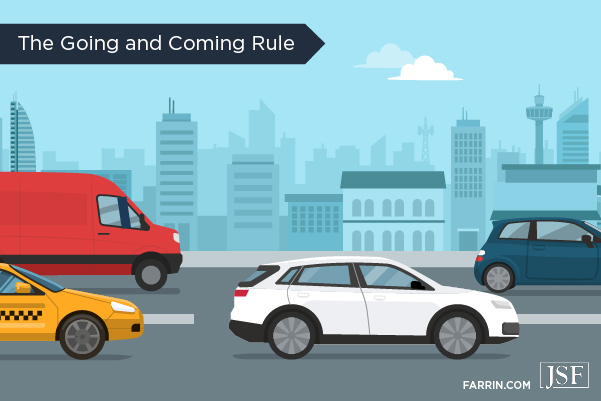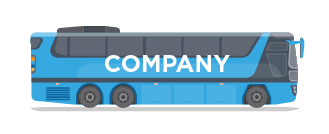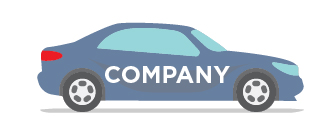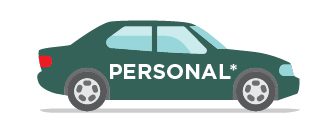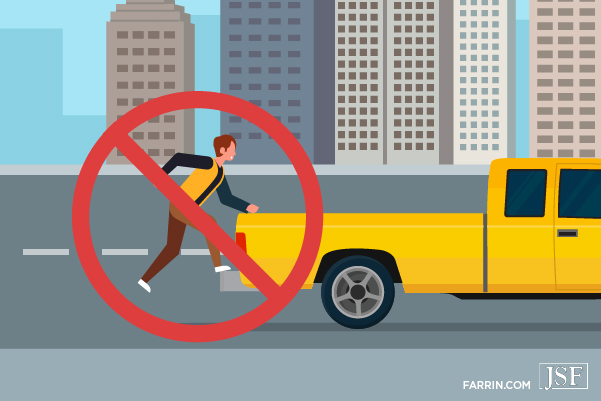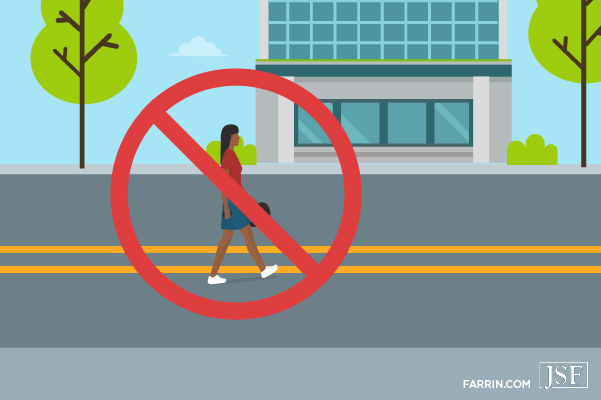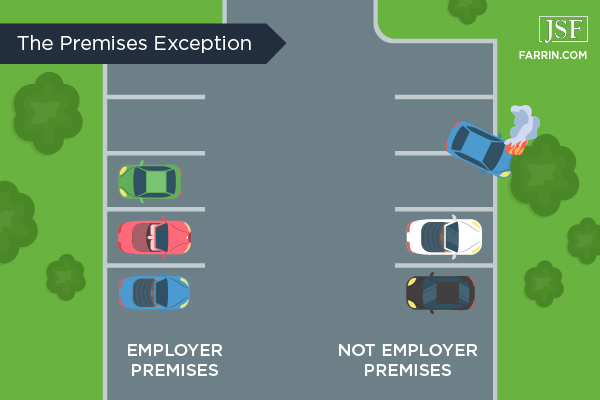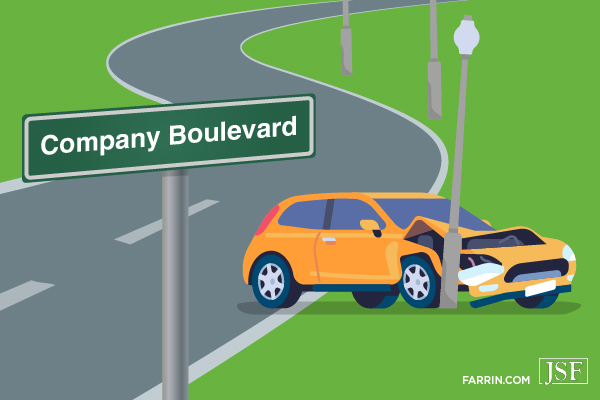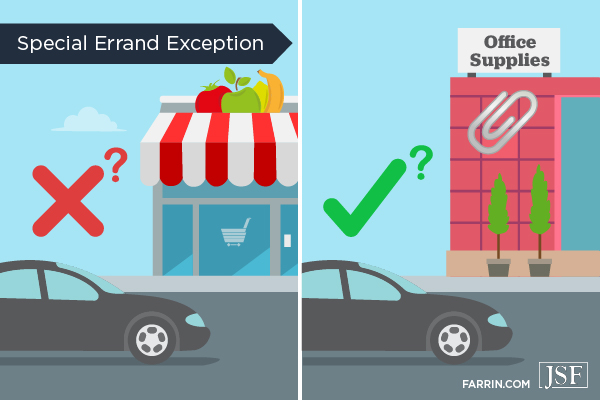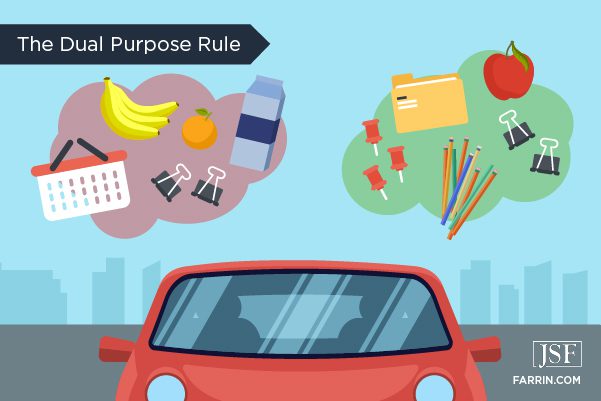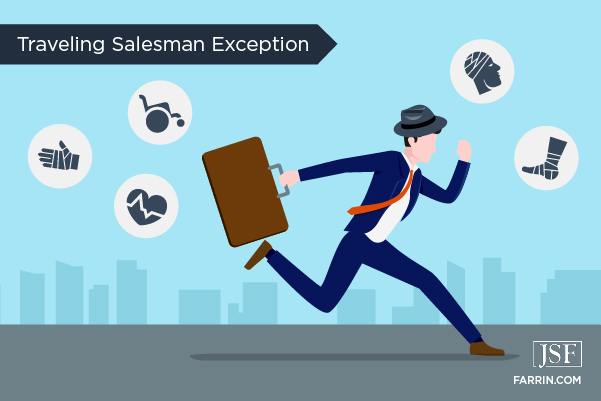Sometimes, getting hurt at work is a clear-cut case. For example, if you slip and fall at the office, that can be very straightforward. There’s likely no question where you were, what you were doing, or whether you qualify for workers’ compensation.
That clarity is muddied when you’re driving. In those cases, whether or not your injury qualifies for workers’ compensation benefits may not be so clear.
So what happens if you’re in an accident driving for work?
As is so often the case, the answer is, “it depends.” There are rules and exceptions, not because the law isn’t clear, but because it cannot possibly account for every circumstance. Here are some examples and scenarios to help you.
A Quick Primer on Workers’ Compensation Law
The law regarding workers’ compensation begins in the same place for most states, though every state interprets it differently and has its own unique case law. To be “compensable” – eligible for compensation under the law – an injury must meet two criteria: it must have happened by accident, and it must have arisen out of and in the course and scope of your work.
- Happen by accident – Your injury had to be accidental, but it generally does not matter whose fault it was, as long as you were not under the influence at the time or something similar. A coworker, faulty equipment, or even just an “act of God” can cause a compensable injury. Workers’ compensation injuries are “no-fault” as a means of protecting more workers and reducing the burden on the courts. (And yes, this is all an oversimplification.)
- Arising out of and in the course and scope of your work – You had to be working when you were injured, but it’s much more complicated at times, especially when you’re driving. Many questions arise and rules (and exceptions to rules) come into play. (And this is also an oversimplification.)
Your injury may qualify for workers’ compensation if you’re in an accident while driving for work, but what exactly does it mean to be “driving for work” under the law? If you’re wondering whether or not your regular commute counts as driving for work, the answer is usually no. Let’s break it down.
The Going and Coming Rule: Is My Injury During My Commute Covered?
“I was injured in a car accident on my way to work. Am I covered?” As a general rule, that wreck in rush hour on the way to work that totaled your car and injured you is not a workers’ compensation injury. Yes, there are a few very narrow exceptions. For most people, however, this is the end of their claim.
Essentially, the law says that if you’re hurt in a car accident on your way to work but not yet working, it’s generally not a workers’ compensation case. Likewise, if you’re done working and get hurt on your way home, it’s also generally not a workers’ compensation case.
That covers the majority of workers (including me). However, it wouldn’t be workers’ compensation law if there weren’t exceptions.
What if I Get Injured Driving a Company Car, or on Company Transportation?
There is an exception to the “Going and Coming” rule called the “contractual duty exception,” which covers a couple of different situations. There’s also an exception to the contractual duty exception.
- Employer-provided transportation: If your employer is under a contractual duty to get you to and/or from work or furnishes transportation as part of the employment contract, an injury you suffer during travel may be compensable (remember: compensable means covered by workers’ compensation).
- Accidents occurring off the employer’s premises: If you’re injured going to or returning from work, your injury may be compensable if the employer, as an incident of the contract of employment, provides the means of transportation to and from the place where the work is performed.
- Employees furnishing their own vehicle: If you’re required to use your own vehicle as part of your job, such as to drive from one patient’s home to another, and are injured going to or coming from work, your injury may be covered by the Workers’ Compensation Act.
All of that probably sounds like you’ve got a good shot at getting your injury covered if you’re injured going to or coming from work, but remember that these are exceptions. They’re narrower than the general rule.
How Do I Know if My Injury Is Covered by the Contractual Duty Exception?
Are you required to use the employer’s transportation?
Said another way: Do you have it as a part of the contract? Or is it a gratuity, and provided merely for your accommodation? The difference matters, and it might be hard to determine at a glance.
Employer-provided transportation, for instance, could be anything from a bus ticket to a company car or truck. What if the transportation isn’t contractual, and you simply have access to transportation to accommodate you? What if you’re going to breakfast, not to work? And if you’re using your vehicle, when does work start?
The easiest answer here is, “Ask a lawyer.”
What Is the Exception to the Contractual Duty Exception?
It’s a bit complicated, and I’d have to use too much legal jargon to really get deeply into it. I’ll sum it up this way: Just because you have to use your car in the course of your employment doesn’t mean an injury you sustain doing so is a coverage slam dunk. This area of workers’ compensation law can be contentious and interpreted in many ways. Again, ask a lawyer and get trained eyes on your circumstances.
What if I’m Hurt While Driving for Work as a Result of Risk Incidental to My Job?
So, after a long morning of work, you hop in your car to head to lunch. You parked in the same lot as all employees and guests. Someone hits you and injures you on your way out of the lot. Does workers’ compensation cover your injury?
The example comes from a real case, and the answer was yes. The courts have held that “going to lunch” is generally part of being at work. And, key to this particular example, they were on their employer’s premises. Your circumstances may vary, and that can make all the difference.
The point is that you got hurt while driving, and in circumstances like the example, the risk was incidental to employment and was covered. And, again, your particular circumstances may make all the difference.
The Exception Doesn’t Always Apply
In another case, a worker was killed when he tried to jump on a truck exiting his work area at lunchtime. He was on the work premises, and a work-related vehicle was the one that caused his death. However, the court held that his injury was not covered because his work did not obligate him to board the truck. He could have walked to his destination. The risk of being injured was created by him and not incidental to his employment.
Similarly, a worker who was struck and killed while crossing a highway to get lunch was not covered, nor was a teacher who was struck and killed on a highway after retrieving her paycheck. In both cases, the workers were off their employers’ premises (although only one was driving).
For a less depressing example, let’s say you were a home health professional driving your car for work. Your employer expects you to do so and pays you mileage, but not for the trip to your first patient, nor the trip home from your last. While heading to your first appointment, you’re injured in a crash.
In this actual case example, the court held that workers’ compensation covered the injury. Does it seem difficult to tell what is and isn’t covered? You guessed it: call a lawyer.
Am I Covered if I Am Injured While Driving on My Employer’s Premises?
You can’t necessarily begin working the instant you arrive at work. For example, you have to get out of the car, enter the building, and get to your desk. The court has held that a “reasonable margin” must be allowed to access and enter the place of work. It’s called the “premises exception.”
Injuries you sustain while going to or from work on premises owned or controlled by your employer are generally covered by workers’ compensation. Whether you’re hurt driving in an employer-owned parking lot or riding in an employer-owned elevator, you could be covered for the injuries. They can be deemed to have arisen out of and in the course of your employment.
For example, if you were on a private road maintained by your employer and lost control of your vehicle, injuring yourself, you may very well have a workers’ compensation claim.
When Does My Injury Qualify for the Premises Exception?
Generally, the “Going and Coming” rule applies until you enter your employer’s premises, premises they control, or a place you have to use to access your employer’s premises. It could be a parking lot or a lobby. Likewise, the “Going and Coming” rule generally applies once you leave. Once you’ve made it to the premises, the exception could apply.
For example, let’s say you have to park in a parking deck adjacent to your office. You have to park, get out of the car, and make your way into the office to get to work. If you’re injured on the way into the office, would you have a workers’ compensation claim? It depends. The circumstances matter a lot, so you should ask a lawyer.
What Are Exceptions to the Premises Exception?
Not every case is the same, obviously, and the circumstances of an injury make all the difference. For example, let’s say you were getting off shift, but the gate to the facility was locked. Your ride home was on the other side. You suffered an injury climbing the locked gate to get to your ride. Yes, this has happened. No, it was not covered.
Likewise, an injury may not qualify if your employer doesn’t control the adjacent premises you have to come and go through. Let’s reconsider the example of if you needed to park in a parking deck to get to work, and then got injured in that parking deck. Unless your employer owns or exercises control over that parking deck, your injury might not be covered – even if your employer told you to come and go through that parking deck.
Finally, if you’re on your employer’s premises but not working, your injury may not be covered. Let’s say, for example, you go to your office after hours for a private party. On your way in, you stop to assist someone working but fall and injure yourself. You weren’t at work. Your claim would face an uphill battle, and the case on which this example was based ended with a denial of benefits.
I’ll say it again: circumstances matter. To be eligible for workers’ compensation, your injury has to meet all of the requirements.
What if I’m Injured in an Accident While Driving My Personal Vehicle for Work?
So, let’s say you’re about to leave work. Your boss then asks or expects you to run by another place on a work-related task. Maybe you’re taking the night deposit to the bank or picking up the money for a retail business in the morning.
You may be on what’s called a “special errand,” and, depending on the circumstances, you may have a workers’ compensation claim if you’re injured. What if your boss gives you a laundry list of things to do for a company gathering, like go to the Post Office, go pick up photos, check out a rental for a party, and so on? Those could be considered special errands under the law, and if you’re injured while performing them, you could be covered.
Examples of the Special Errand Exception
For example, let’s say you’re a teacher and the principal asks you to go across the street for supplies. You’re struck by a car and injured while crossing the street. Your injury may be covered because you were engaged in a special duty assigned by your employer. But what if you’re on your way to work and have to stop? Same idea – if you can prove you were acting at the direction of your employer, you may be covered under the special errand exception.
The exception can cover you if you’re away from work. What if you have to attend a training session or conference that’s not at your office? It could be considered a special errand by the law, and an injury sustained while you’re attending may be covered – even if you’re just heading to a restaurant for lunch. The circumstances will always be important, but the door is open.
The Dual Purpose Rule and Exceptions to the Special Errand Exception
Be aware that the law gets convoluted when the task or purpose you’re performing becomes unclear. If the single focus of the errand is work-based, the exception can apply. If you combine personal tasks with that special errand, something called the “dual purpose rule” comes into effect.
If an errand involves both business and personal tasks, the dual purpose rule generally says:
It’s a personal trip if the trip would have been made without the business purpose and dropped if the personal task was not needed.
It is a business trip if the trip would have been made without the personal task and dropped if the business purpose was not needed.
In other words, if you were sent to the store to buy office supplies and purchased personal supplies because you were there, it is more likely to be viewed as a business task. You probably would not have gone for personal supplies alone had the business task not required you to go.
If you’re sent to the store to buy office supplies and use that opportunity to stock up on groceries for the week, it is more likely to be viewed as a personal task. You would likely have gone to the store for groceries whether you had to make the trip for work or not.
What if I’m Injured While Traveling, and Traveling Is Part of My Job?
What if you’re in a car accident while traveling for work? Not everyone drives a desk, so to speak. Maybe you’re a road warrior and you’ve got to go out in the world, meet clients, go to lunch, stay in hotels, meet more clients, and so on. In this case, an exception to “Going and Coming” applies because your job requires you to travel. It’s called the “Traveling Salesman” exemption.
Examples of the Traveling Salesman Exception
Despite the name, this exception has been applied when the workers were not traveling salespeople. The gist of the exception is that when travel is part of employment, that employment includes a reasonable margin of time and space passing to and from wherever the work is.
The big deal about the traveling salesman exemption is that it can protect workers even when they’re not strictly working. If your job requires you to stay in a hotel or eat at a restaurant, getting hurt going to or from (or even in) the hotel or restaurant can be covered.
You may even qualify for the traveling salesman exception if you’re required to drive around town for your job and are injured going to your office on the way to see a client. The circumstances matter, but the point is that the law doesn’t see all travel for work as equal.
The exception has also applied to police officers whose departments furnish their vehicles. Because they’re expected to be police at all times and make arrests if they observe someone breaking the law, even if they’re off the clock, the law generally sees them as “on call.” Workers’ compensation, for example, covered an officer killed in a collision while riding his police motorcycle home under the exception.
Exceptions to the Traveling Salesman Exception
Let’s say you’re a health care aide and you’re injured on your way to see your first patient. You see the same patients at the same hours each day. The exception may not apply because you have fixed work hours at fixed work locations. It’s another example of circumstances making all the difference.
Call a Lawyer for Help
Far too many people may be missing the workers’ compensation benefits they desperately need because they’re not sure how to fight for them – or just give up. Hopefully, knowing a bit more about the law gives you more confidence.
As I’ve said repeatedly, circumstances matter. If there’s any doubt in your mind, call an attorney. Evaluating your case won’t cost you any money or lock you in to anything, and it may give you the opportunity to seek some relief.
You May Also Be Interested In
How Long Does Workers’ Comp Last?
It’s Lawyers and Workers vs. Employers and Insurers (and It Always Has Been)
What You Should Know About Common Types of Lift Truck Accidents


